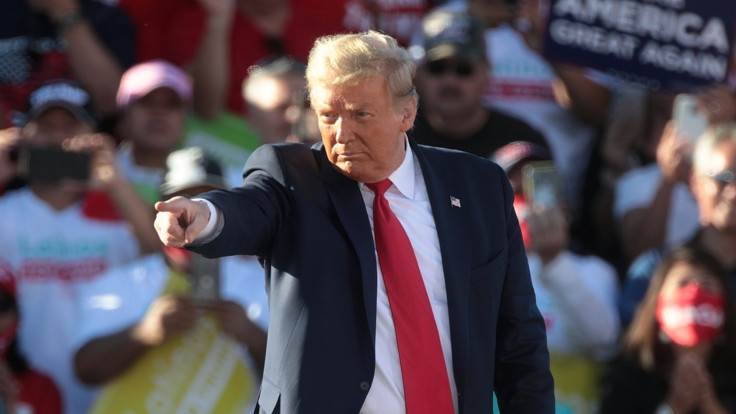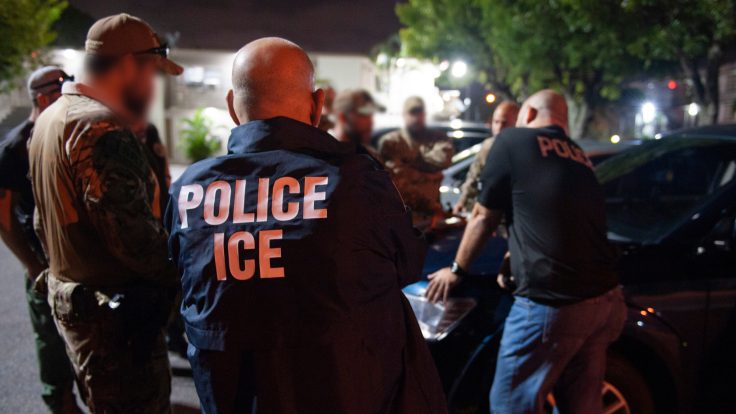Trump 'Panics' As Explosive Hyundai-LG Lawsuit Kicks Off
Detained Korean specialists at Hyundai-LG battery plant allege racial abuse, wrongful detention in explosive class-action lawsuit

A seismic diplomatic and legal storm has erupted after hundreds of Korean engineers detained in a dramatic ICE raid at the Hyundai-LG battery plant in Georgia are preparing to sue U.S. authorities.
The plaintiffs, roughly 200 of the 317 Koreans arrested in the 4 September raid, are reportedly bringing a class-action lawsuit against U.S. Immigration and Customs Enforcement (ICE), alleging unlawful detention, racial discrimination, and human rights abuses.
Many of them hold valid visas and were legally working to build one of the most significant EV battery plants in America.
Specialized Technicians, Not Illegal Immigrants
Legal representatives say the majority of Koreans detained during the ICE operation were not undocumented workers as first publicised, but high-skill professionals. According to immigration attorney Charles Kuck, many of them entered the U.S. on B-1 business visitor visas, specifically brought in to install critical machinery and train American workers.
One of the plaintiffs described being shackled at the wrists, ankles, and chest, his phone confiscated, and confined for seven days in a harsh detention centre in Folkston, Georgia. He said the conditions felt dehumanising: crowded dormitories, mouldy mattresses, filthy water, and public toilets with no privacy.
According to his testimony, some guards taunted detainees with racist mockery, referencing North Korean leaders ' comments that deepen the pervasiveness of the alleged abuse.
Project Delay and Diplomatic Fallout
The raid has triggered immediate operational and diplomatic fallout. Hyundai's CEO, José Muñoz, announced that the plant's launch will be delayed by at least two to three months, citing a lack of skilled personnel required to complete the setup.
LG Energy Solution, Hyundai's partner in the joint battery venture, confirmed that production is now expected to begin in the first half of 2026, months later than previously projected.
Seoul's government expressed strong concern over the detentions. A South Korean Foreign Ministry spokesperson warned that the economic activities of Korean firms investing in the U.S. and the rights of its nationals must not be trampled.
Immediately following the raid, the South Korean government brokered the repatriation of most of the detained workers via a chartered flight.
Demand for Justice and Accountability
The looming lawsuit threatens to upend ICE's enforcement strategy and paints a stark picture of alleged abuse: Plaintiffs are seeking compensation for psychological trauma, economic loss, and punitive relief for what they claim were constitutional violations, including unlawful seizure and racial profiling.
The legal push also calls for structural changes: court oversight of future industrial sweeps, clearer visa protections for technical workers, and official apologies to correct their immigration records.

The resolution of this case could set a powerful precedent for how the United States treats foreign experts working in advanced manufacturing, especially at strategic EV battery sites.
Beyond the courtroom, the case has raised questions at the highest levels. Some analysts suggest ICE's move may have been motivated by underlying safety concerns: according to reports, the construction site had experienced at least three fatal accidents and 91 ambulance calls over two years, prompting speculation that undocumented workers were too fearful to report unsafe conditions.
Trump's Quandary
In an unexpected twist, Trump, who has long taken a hard line on immigration, has voiced opposition to the raid, calling it counterproductive to America's industrial ambitions. He argued that factories building 'very highly sophisticated equipment' need experts who can transfer their know-how to American workers.
Trump says his administration is now working on a 'whole new' visa programme to allow highly skilled foreign workers in legally, while they train domestic talent, effectively framing the incident as evidence that current restrictions undermine U.S. industrial strength.
The lawsuit marks an escalation of an already volatile episode: what began as an immigration raid has ballooned into a diplomatic confrontation, a test of U.S. border enforcement policy, and a battle over the future of high-tech manufacturing. The outcome could reshape how STEM talent is sourced and held accountable in strategic industries.
© Copyright IBTimes 2025. All rights reserved.





















